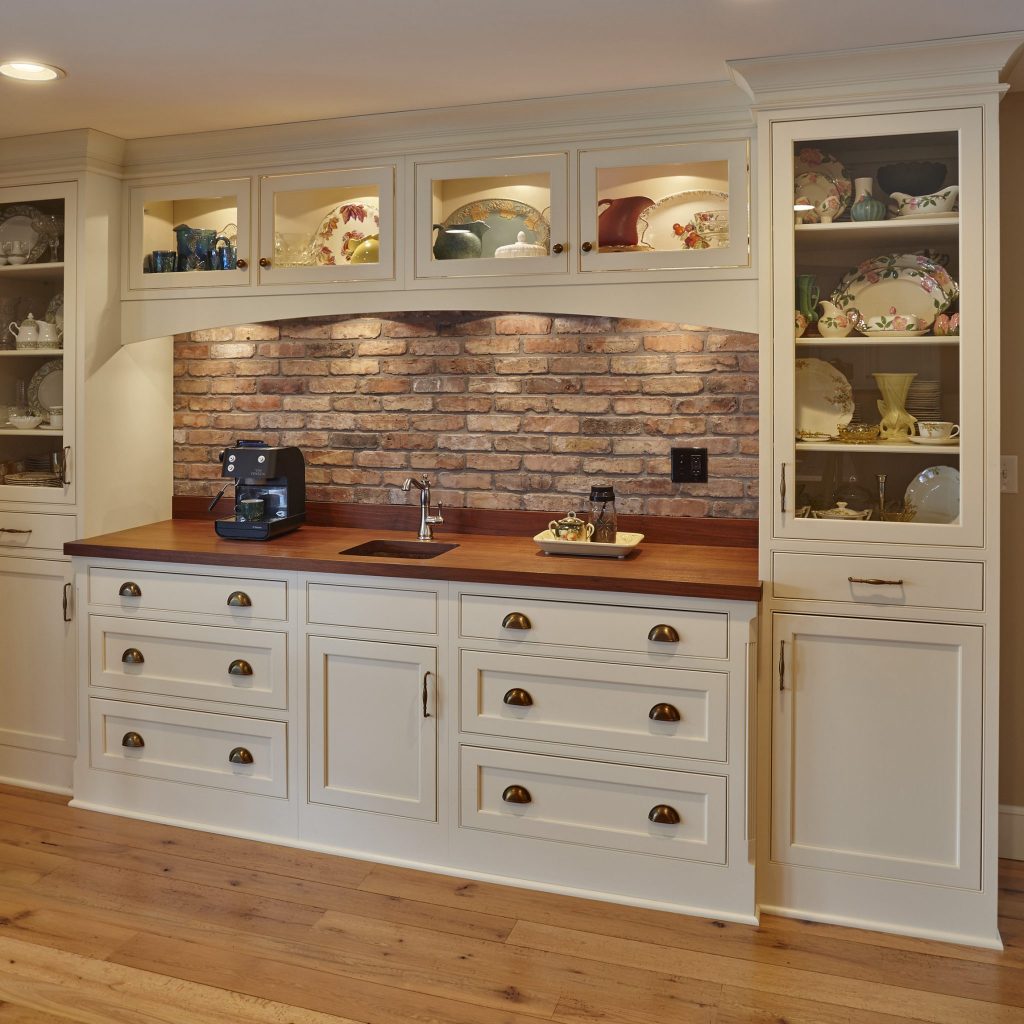
8 Types of Kitchen Countertops and Which is Best for You
Style and color and cost… oh my! When starting a kitchen renovation, it’s easy to become overwhelmed with all of these factors. And we’re just talking countertops at this point! To simplify the process, check out the pros and cons of these eight types of kitchen countertops before making your decision.
8 Types of Kitchen Countertops to Consider
You don’t think about it when looking at kitchens as a whole, but your kitchen countertop is the hub of the room. From meal prep and party hosting to homework and craft projects, a LOT happens in the kitchen.
Each of the types of kitchen countertops listed below has its own durability threshold, color limitations, and upkeep factors to consider before choosing the right kitchen countertop for your family.
1. Laminate
Laminate generally has a low price point and is durable enough to withstand everyday use. Plus, the color and style options are seemingly endless. It is not as durable as natural stone, however, and once scratched, cannot be effectively repaired. In some cases, seams can swell and damage the top if water penetrates the surface. For this reason (and to accommodate hot surfaces), families that spend lots of time cooking may prefer a material that is heat resistant.
2. Wood
Wood countertops create a warm, homey kitchen and come in many varieties. If properly sealed, the porous surface of the wood should not pose a problem for germs or water damage. They may need refinishing after some time and can scratch and dent easily, but overall, wood can be a wonderful accent top.

3. Solid Surface
With invisible seams and hundreds of color options, solid surface is one of the most popular types of kitchen countertops. They are quite durable and difficult to stain, but can be burned or scratched fairly easily. Fortunately, they are repairable.
4. Concrete
Concrete provides a unique, industrial vibe that is very popular in today’s kitchen designs. It’s tough, heat and stain-resistant, and doesn’t scratch. It is incredibly heavy, however, and can, therefore, be difficult to install. Beyond the higher-end price point of concrete, you should also keep in mind that concrete countertops will need to be resealed every one to three years.
5. Granite
Granite has gained popularity in recent years for its stain, heat, and water-resistant qualities (when sealed). It requires little maintenance but can chip or crack if the material is too thin. Granite is also very heavy and must be adequately supported, plus, final colors can vary from samples due to the natural sourcing of the product.
6. Quartz
Engineered stone, or quartz, is low maintenance, heat and scratch-resistant, and easy to customize. While it doesn’t need to be sealed, it can chip and may show visible seams where two pieces meet. Plus, the cost is often a factor when deciding against this durable stone.
7. Marble
Marble is highly sought after for its sense of luxury and is available in a wide variety of colors. Its soft and porous texture, however, means it scratches and stains incredibly easily. Consequently, it is not recommended for kitchen use and is better suited for bathroom applications.
8. Stainless Steel
Stainless steel lends itself to a high-end commercial kitchen look and is durable and heat resistant. Crumbs, spills, and fingerprints show up easily, however, and scratches and dents are almost unavoidable.
Take time to consider what your family uses the kitchen for most before deciding on a material for your kitchen countertop. Sometimes a specific kitchen layout may even lend itself to one material over another. Your kitchen designer can advise and help you make the best decisions for your kitchen. Whichever route you choose, it’ll be the perfect surface for building memories. Make an appointment to speak to a kitchen design expert today!

